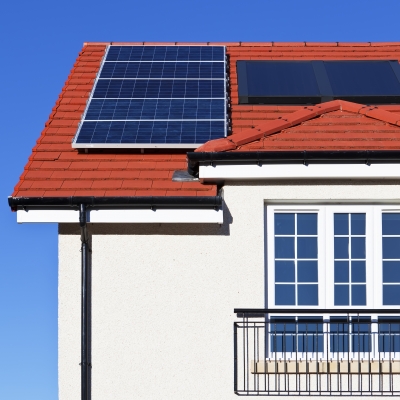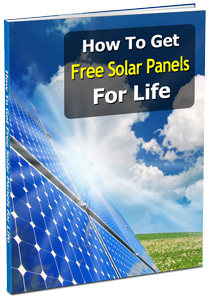Solar power has emerged as one of the most innovative ways to produce sustainable electricity. Solar panel systems are a popular eco-friendly, green energy alternative to relying on electricity produced by coal, natural gas or petroleum. The price of a solar panel systems’ components have decreased drastically over the past decade, and many government tax credit incentives may offset a significant amount of the cost to install solar power. Properly installed solar panel systems can function efficiently for decades, and by providing you with significant energy savings you can expect the system to pay for itself in much less time, than ever before. If you’re interested in purchasing a solar power system for your home or business, understanding the anatomy of the a solar panel system will help you to know how it works, and ask the right questions so you can get the best deal for your energy needs.
How do Solar Power Systems work?
Every solar power system must have solar panels, which convert sunlight into electricity. Multiple solar panels are grouped into arrays. Solar panels come in many types and sizes, with different power outputs (measured in watts). Some panel arrays are stationary, while others rotate east-to-west to track the sun’s movement and maximize the amount of electricity produced each day. A common residential solar panel system contains an array of four to ten 100-watt photovoltaic(PV) polycrystalline panels.
Municipal laws typically require solar panels to be installed on a building’s roof. They may be installed directly to a roof’s shingles or by specially designed racks that attach to a roof’s rafters. Under certain conditions, solar panels may also be mounted on freestanding poles or laid on the ground.
Back it up or let it flow?
The form of electricity these solar panels create is direct current (DC). If this electricity is not immediately needed to power anything, this DC is sent to the utility grid or stored in battery packs. Battery storage systems can be expensive, have shorter lifespans than your solar power system and require regular maintenance. Most solar panel installations are tied to the grid. The benefit of being tied to the utility grid is that you’ll be able to take advantage of net metering. Net metering allows you to feed the excess electricity you produce with your solar panels back to your utility company. This excess energy will make your utility meter run backwards to give you credit for the excess energy you’ve generated with your solar power system.
There are certain situations where you might need to be connected to a battery backup system. It may be your only option if you’re located in a very rural area that does not provide electric utility service hookup or if it’s too expensive to bring an electric hookup to your site. If you require this type of system, then you’ll need a charge controller, which will prevent battery damage due to overcharging. Additionally, if your solar panel system is not attached to the public utility grid, a gas powered backup generator is sometimes included as part of the home energy system. It will provide power if the panels aren’t able to produce energy and the batteries become depleted.

Diagram: Solar Powered Home
If the electricity your solar panels generate is needed for immediate use, it is sent to an inverter. An inverter’s main function is to convert DC to alternating current (AC), the form of electricity used by most commercial appliances. This AC is sent to a circuit breaker panel (also called a service panel, electric box, or breaker box), which distributes AC throughout a building’s electrical wiring so it can be used to power lights, appliances, and all of our modern electronics. Many inverters can also charge a solar panel system’s batteries if the system is connected to the public utility grid.
A common safety feature of a circuit breaker panel is a series of circuit breakers that regulate the flow of electricity throughout a home or building. These circuit breakers automatically shut down the electric flow to appliances that are using excessive amounts of electricity, thereby lowering the risk of fires and electrical shorts.
A solar power system is typically a very smart investment for home and business owners. It can provide you with years of energy saving – clean and green electricity. Having a basic understanding about the components of a new solar panel system will help you to ask the right questions so you get the right system for your energy needs.
You’ll also like:
One Solar Company that’s Eclipsing the Competition
How Solar Energy System Owners use Net Metering to get Paid
When the Power Goes Out – These Generators Keep you Going


Leave a Reply